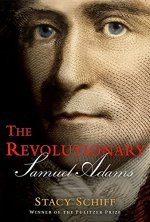Tight Lines
Senior Member

Just finished the book The Revolutionary Samuel Adams. I've read excerpts about him, but never an entire book about him.
Aside from the book being easy to read and interesting, there were several things that stood out to me...
FIrst, politics as blood sport was alive and well prior to The Revolution...if we think we exaggerate events in the media now, it was commonplace even back then...
Second, I didn't realize how polarizing he was both before and after The Revolution...it really wasn't until generations later that he became the hero he is today...
Third, was just an observation that anyone who doesn't understand the 2A should read this book regarding how the British tried unsuccessfully to disarm the colonies.
The author is good, but there are times I was left wanting to understand more where she paraphrases events or skips over large blocks of time. That's OK as the book was about Adams, but there are areas where I wished for more detail.
All in all if you are looking for a book to read, this would be on my list...
